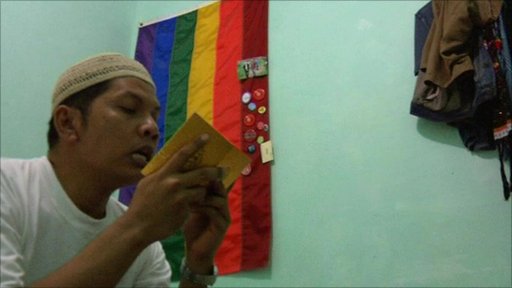 Jakarta: LGBT individuals are often prevented from living meaningful lives and are denied opportunities others take for granted in Indonesia says the first comprehensive report on the state of LGBT rights in the world’s most populous Muslim country.
Jakarta: LGBT individuals are often prevented from living meaningful lives and are denied opportunities others take for granted in Indonesia says the first comprehensive report on the state of LGBT rights in the world’s most populous Muslim country.
The joint report by the US Agency for International Development and the United Nations Development Programme was released June 17
Entitled, ‘Being LGBT in Asia: The Indonesia Country Report,’ the document calls on the government to recognize the existence of LGBT individuals as an integral part of Indonesian society, and to respect and protect the rights of LGBT people.
While USAID Acting Mission Director Derrick Brown describes the report as “ground-breaking” UNDP Country Director, Beate Trankmann said the reports reveals that LGBT individuals are often prevented from living meaningful lives and are denied opportunities that others take for granted.
The report aims to provide inputs to guide the adjustment of legal frameworks and practices to ensure that all people regardless of their sexual orientation or gender identity are treated equally, Trankmann said.
The report points out that national laws do not recognize or support the rights of LGBT people, even though same-sex relations is not criminalized even though some local ordinances portray sae-sex relations as immoral behavior.
Moreover, there are no specific anti-discrimination laws that pertain to sexual orientation or gender identity as Indonesian law only recognizes male and female genders, the report said.
Discrimination against LGBT individuals in the workplace also does not receive significant attention as there is an absence of anti-discrimination laws to protect LGBT workers’ rights.
Most discrimination is directed at transgender women, who face challenges with stable employment, prejudice, housing and identity cards, the report said.
Health related information and resources for LGBT people in Indonesia are predominately related to HIV and Sexually Transmitted Infections and there is also a lack of support and counseling for the well-being issues for all LGBT people.
A general lack of education on sex and sexuality in schools, and on issues specifically related to LGBT sexuality, combined with a lack of guidance from parents is harmful to the self-esteem of young LGBT people, the report said. Bullying of LGBT students is also remains another concern.
The quality of media coverage on LGBT issues in Indonesia varies from supportive to hostile and LGBT individuals and organizations rely on information communication technology to disseminate related information.
Acceptance by families toward LGBT members is limited by strong cultural pressures to enter a heterosexual marriage and form a family, as well as conservative interpretations of religious texts, the report said.
Although Indonesia is the world’s most populous Muslim country it has never been an Islamic state but prejudices against the LGBT community are largely formed by Islam, whose followers make up about 90 percent of its 250 million people.
Source: id.undp.org
